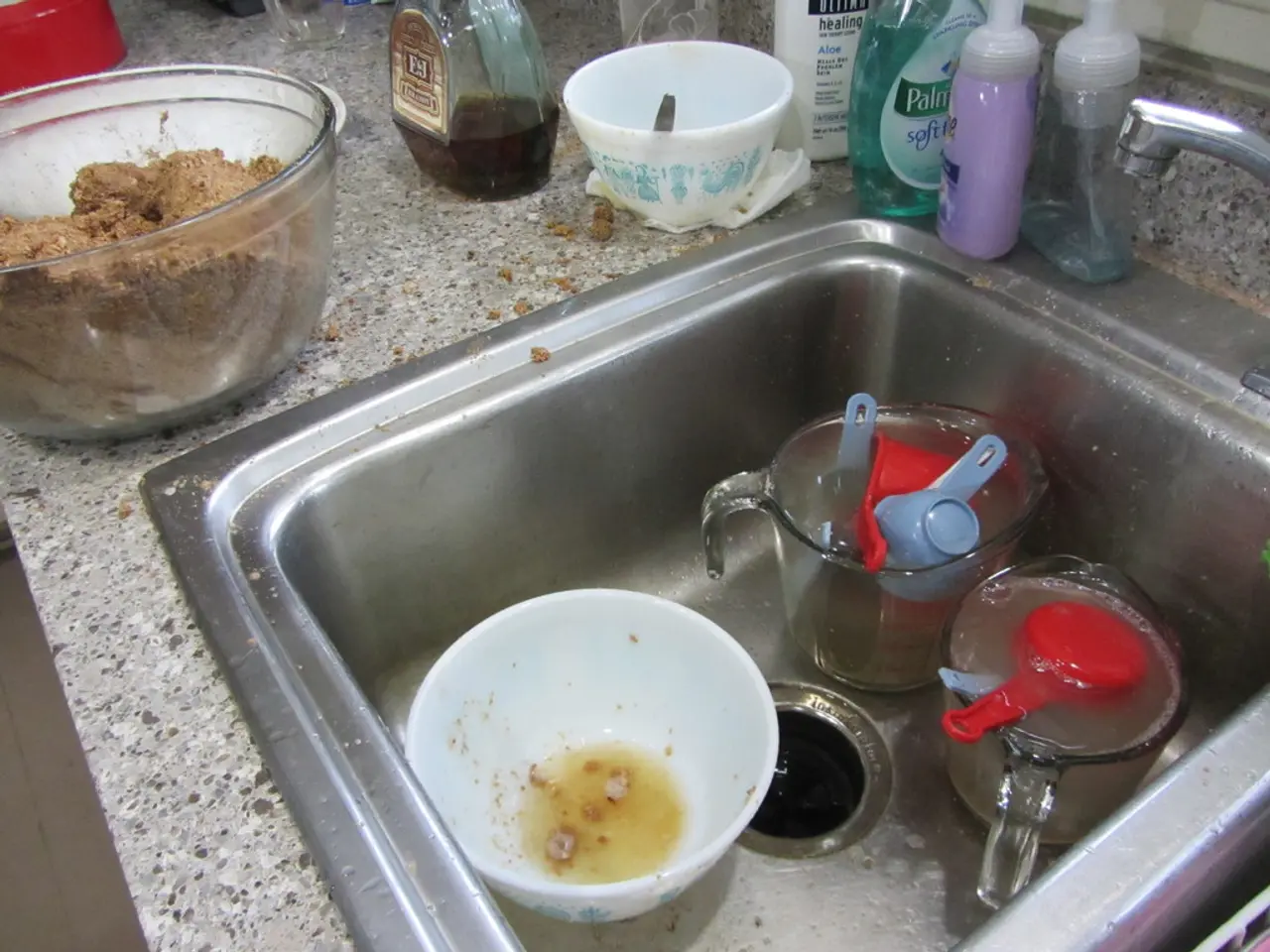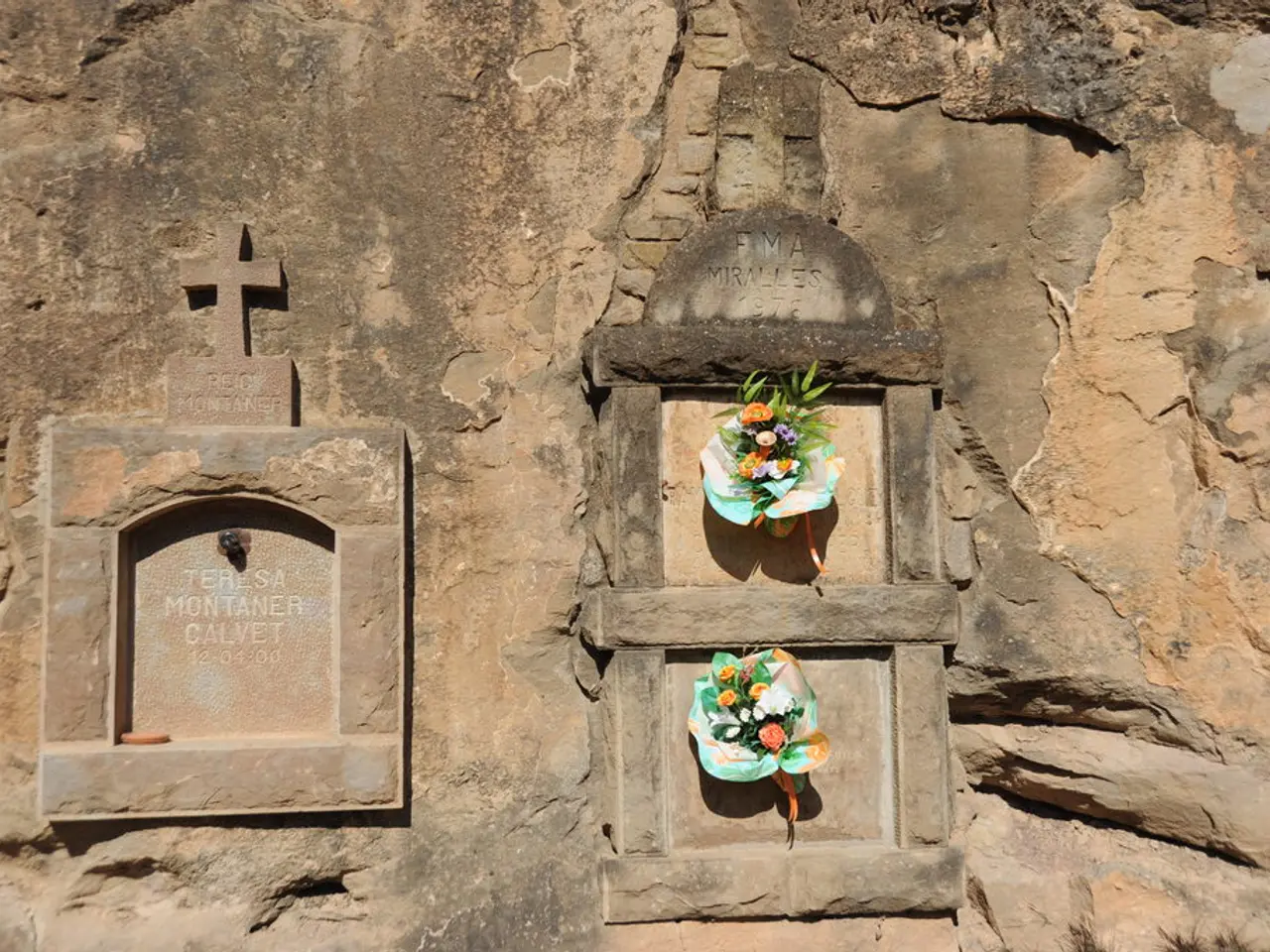"Amnesty Criticizes Pakistan's Treatment of Minorities in Sanitation Jobs: 'We Too Shed Blood Like Everyone Else'"
In a recent report titled "Cut Us Open and See That We Bleed Like Them," Amnesty International sheds light on the alarming caste and religion-based discrimination faced by sanitation workers in Pakistan. The report highlights the urgent need for legislative reforms to protect the rights and dignity of marginalized communities.
According to the report, only 44% of sanitation workers have permanent contracts, while 45% have none, leading to job insecurity and denial of benefits. The report also indicates that the country's government and military establishment should address systemic abuses that have been entrenched for years.
The report underscores the severe unjust treatment of sanitation workers in Pakistan as both social and economic marginalization and human rights violations under international law. It calls for urgent legislative and policy changes, including banning caste-discriminatory hiring practices, ensuring occupational safety, guaranteeing enforcement of equal pay, job security, and permanent contracts, and legal recognition of sanitation work as essential labor entitled to full labor rights protections.
The report also emphasizes the importance of ratifying and implementing ILO Convention 190 concerning workplace violence and harassment, which would protect workers from abuse and exploitation. While some Pakistani legislators have proposed constitutional amendments to end discrimination explicitly against religious minorities, there is no detailed public record yet of specific new legislation targeting caste-based discrimination in labor law or sanitation sectors.
The report documents testimonies from over 230 workers across several cities in Pakistan, revealing a system that exploits marginalized communities, denying them basic labor rights and human dignity. Working conditions are often life-threatening, with 55% of workers developing health problems due to a lack of protective equipment.
Many sanitation workers have been subjected to derogatory slurs such as "chuhra" and "bhangi." Women workers, particularly Christian women, face additional gender-based discrimination and are often assigned the "dirtiest" tasks. The absence of an anti-discrimination law in Pakistan violates the country's commitments under multiple UN and ILO conventions.
Isabelle Lassee, Deputy Regional Director for South Asia at Amnesty International, states that the treatment of sanitation workers in Pakistan constitutes human rights violations under international law. Amnesty International warns that Pakistan's sanitation workforce will remain trapped in a cycle of exploitation if systemic abuses are not addressed.
The report concludes by calling for urgent legislative reforms to outlaw caste-based discrimination, enforce labor protections, and end the recruitment of minorities into sanitation work based solely on their identity. The cycle of exploitation is sustained by state neglect, societal prejudice, and institutionalized injustice, and it is high time that Pakistan takes concrete steps to address these issues and uphold the dignity and rights of its sanitation workers.
[1] Amnesty International. (July–August 2025). Cut Us Open and See That We Bleed Like Them. Retrieved from [URL] [2] Pakistan Center for Law & Justice. (July–August 2025). Entrenched Discrimination: Caste and Religion-Based Abuses Against Sanitation Workers in Pakistan. Retrieved from [URL] [3] Government of Pakistan. (2023). Proposed Constitutional Amendments to End Discrimination Against Religious Minorities. Retrieved from [URL] [4] International Labour Organization. (2025). ILO Convention 190: Eliminating Violence and Harassment in the World of Work. Retrieved from [URL] [5] United Nations. (2025). Convention on the Elimination of All Forms of Discrimination Against Women. Retrieved from [URL]
- The report by Amnesty International, titled "Cut Us Open and See That We Bleed Like Them," also discusses the urgent need for the Pakistani government to address systemic abuses in the 'crime-and-justice' sector, particularly the lack of legal protection for sanitation workers who are subjected to derogatory slurs and exploitative working conditions that violate their human rights and dignity.
- The report on sanitation workers in Pakistan, published by Amnesty International, underscores the importance of ratifying ILO Convention 190 concerning workplace violence and harassment, which could help protect these workers from abuse and exploitation, thus contributing to the improvement of the 'general-news' landscape by ensuring labor rights protections.
- In addition to calls for legislative reforms to end caste-based discrimination in the sanitation sector, the Amnesty International report also raises concerns about the absence of an anti-discrimination law in Pakistan, which reportedly violates the country's commitments under multiple UN and ILO conventions, making it an 'opinion' worth considering for policymakers aimed at fostering a more equitable society.








